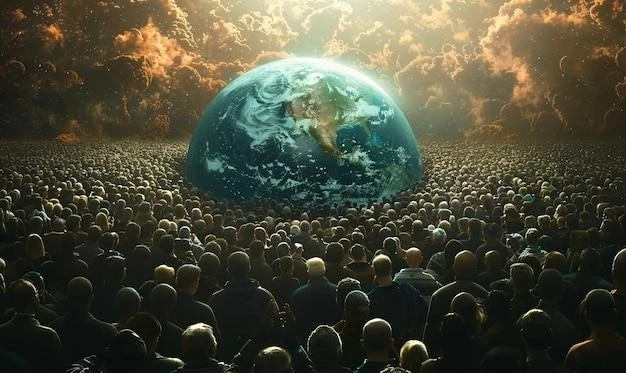The New World Order: A Global Conspiracy?
The phrase “New World Order” has been used for centuries, often invoking images of a shadowy cabal plotting to rule the world. While the term itself is vague and open to interpretation, it has become synonymous with conspiracy theories that posit a powerful, secretive group aiming to establish global domination through various means, such as economic manipulation, political control, and even societal engineering.

Origins and Evolution of the Concept
The idea of a “New World Order” dates back to the 18th century٫ with Enlightenment thinkers like Immanuel Kant envisioning a future where nations would cooperate to achieve peace and prosperity. However٫ the term gained sinister connotations in the 20th century٫ particularly in the wake of World Wars I and II. This was fueled by fears of rising global powers٫ unchecked international organizations٫ and the perceived threat of communism.
Modern conspiracy theories surrounding the “New World Order” often focus on the following elements:
- Secret Societies: Organizations like the Freemasons, Illuminati, and Skull & Bones are frequently cited as being involved in the supposed conspiracy.
- Globalist Elites: Wealthy individuals, powerful families, and influential institutions are accused of manipulating global events to their advantage.
- Economic Control: Conspiracy theories often allege that the “New World Order” seeks to establish a one-world currency, eliminate national sovereignty, and control global markets.
- Political Agenda: Proponents of these theories often believe that the “New World Order” aims to create a totalitarian state, suppress individual liberties, and impose a global government.
Debunking the Conspiracy
Despite widespread belief in these theories, there is no credible evidence to support the existence of a “New World Order” as a cohesive, organized, and nefarious force. The complexity of global events, with numerous actors and motivations, makes it impossible to attribute them to a single, hidden group.
Furthermore, many of the claims made by conspiracy theorists are based on misinterpretations, distorted information, and outright fabrications. For example, the notion of a one-world currency is often linked to the International Monetary Fund (IMF), but the IMF’s role is primarily to provide financial assistance to developing countries, not to establish a global currency.

The Dangers of Conspiracy Theories
While the “New World Order” conspiracy theory may seem harmless to some, it can have serious consequences. These theories promote mistrust in established institutions, undermine democratic processes, and can even lead to violence. By fostering paranoia and division, conspiracy theories can create fertile ground for extremism and radicalization.
Conclusion
The “New World Order” conspiracy theory, while deeply entrenched in popular culture, lacks any factual basis. It is important to approach such claims with a critical eye, relying on verifiable information and avoiding unverified sources. The complexity of global events requires nuanced understanding and analysis, not simplistic conspiracy narratives.
Instead of succumbing to fear and suspicion, we should focus on building a more just and equitable world through constructive dialogue, cooperation, and respect for diverse perspectives.










